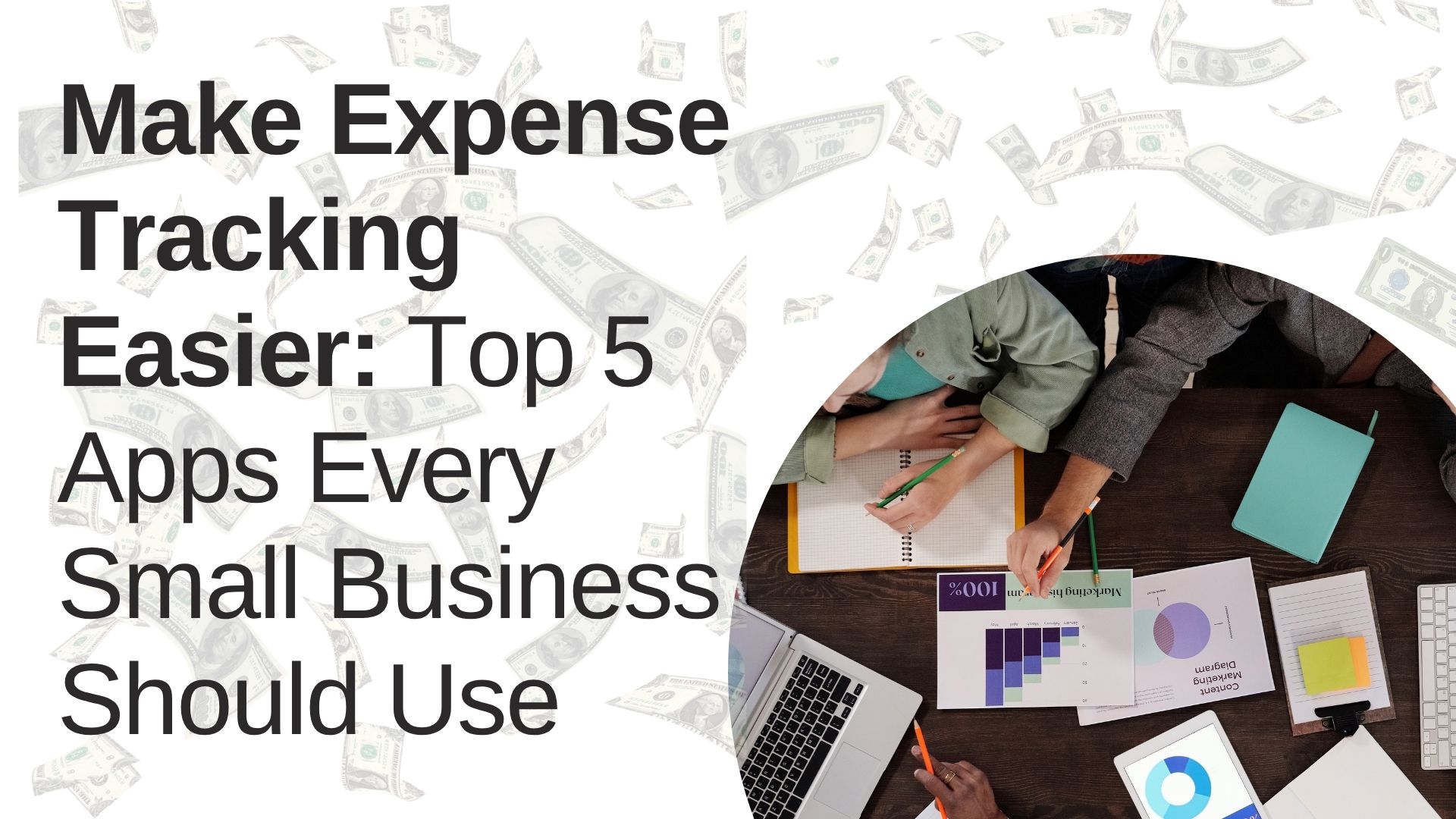Operating a small business means balancing numerous tasks—from overseeing staff and delivering client services to maintaining financial oversight. Expense management often becomes one of the most dreaded tasks for entrepreneurs. Thankfully, the digital era has brought a wide range of tools to streamline this process. Among the most impactful are modern expense audit software solutions. These tools do more than record receipts or sort spreadsheets—they help automate approvals, categorize expenses, sync with bank accounts, and simplify tax preparation. Here, we explore five of the best apps that empower small business owners to take control of their finances while minimizing stress.
Why Expense Audit Software Is Essential for Small Businesses
Before diving into the top tools, it’s essential to understand why expense audit software is so vital. Small businesses typically operate on tight budgets. Every dollar count, and mismanaged spending can quickly impact profitability.
Expense audit software allows business owners to:
- Track and categorize expenses automatically
- Ensure compliance with tax regulations
- Reduce the risk of human error
- Generate detailed audit trails
- Detect unusual or unauthorized spending
- Gain real-time insights into financial health
Implementing a reliable expense audit software system enables small businesses to shift from reactive bookkeeping to proactive financial management.
1. QuickBooks Online – Best All-in-One Accounting and Expense Tool
QuickBooks continues to be one of the most trusted platforms for small business accounting, earning its reputation through consistent performance. Its online version includes comprehensive expense audit software features that simplify financial tracking. Business owners can link bank accounts, credit cards, and payment platforms directly, allowing for seamless transaction imports and categorization. The platform supports receipt scanning via a mobile app, integrates with third-party tools, and provides customizable reports. QuickBooks’ built-in expense audit software capabilities ensure that transactions are recorded accurately, making audits and tax preparation significantly easier. QuickBooks is ideal for small businesses seeking a comprehensive system that integrates accounting, invoicing, payroll, and expense management all in one place.
2. Expensify – Best for Automated Receipt Management
Expensify is popular among entrepreneurs who need a straightforward, mobile-first solution to track daily business expenses. This app uses innovative scanning technology to automatically read and categorize receipts, syncing corporate credit cards and accounting systems. Its built-in expense audit software tools automatically flag duplicate entries or policy violations. This makes it easier to ensure compliance and transparency in employee expense claims. Expensify also supports real-time reimbursement and multi-level approval workflows, reducing bottlenecks in the expense reporting process.
Expensify is especially useful for businesses with traveling employees or distributed teams, thanks to its excellent mobile functionality.
3. Zoho Expense – Best for Integration and Workflow Automation
Zoho Expense, a part of the larger Zoho ecosystem, is known for its adaptability and strong automation features. Tailored for small to medium-sized enterprises, it integrates smoothly with both Zoho tools and external applications like G Suite, Slack, and QuickBooks. It offers robust expense audit software features, including automated expense categorization, policy compliance checks, and GPS-based mileage tracking. Managers can set up custom approval workflows, while employees can upload receipts or expenses on the go. The real power of Zoho Expense lies in its configurability—it’s adaptable for both startups and growing businesses with evolving needs.
4. Xero is recognized for its clean, intuitive layout, making it a great choice for users who value ease of use and simplicity
Xero is an accounting solution that’s gaining popularity for its simple, intuitive interface. It offers all the essentials—expense tracking, invoicing, and bank reconciliation—within a user-friendly dashboard. Xero offers robust expense audit software features such as automated bank feeds, up-to-date financial reporting, and detailed, audit-ready expense logs. The mobile app allows the capture of photos of receipts, and expenses are automatically matched with bank transactions, reducing the need for manual data entry.
For small businesses that want a clean, easy-to-use platform without sacrificing key audit features, Xero is a solid choice.
5. FreshBooks – Best for Freelancers and Solo Entrepreneurs
FreshBooks is designed with freelancers and small service-based businesses in mind, offering tools that align with their unique operational needs. It provides an all-in-one solution that unifies invoicing, time tracking, and expense management into a single, convenient platform. Its automated expense audit software features help track spending across different projects, clients, and categories. Users can snap receipts from their phones, link their bank accounts, and generate simple but effective financial reports. FreshBooks’ intuitive system makes it easy for those who may not be financial experts to stay on top of business finances. FreshBooks also enables collaboration with accountants, making tax season smoother due to its transparent expense audit software capabilities.
Essential Features to Consider When Evaluating Expense Audit Software
Whether you’re a freelancer or running a team of ten, it’s crucial to select expense audit software that supports your business’s specific needs. Here are the features to prioritize:
- Real-time expense tracking
- Receipt capture and categorization
- Automated approvals and workflows
- Integration with accounting and payroll platforms
- Compliance tools and audit trail reports
- Multi-user support with access control
- Mobile Accessibility
Not all apps offer the same depth of features. Carefully reviewing each solution’s expense audit software capabilities will help you find the right fit.
Benefits Beyond Just Tracking
Implementing expense audit software isn’t just about staying organized—it has a direct impact on your bottom line. Businesses using these tools report:
- Lower operational costs due to reduced errors and fraud
- Faster reimbursement times for employees
- Simplified tax preparation and filing
- Improved visibility into spending trends
- Better decision-making based on real-time insights
When small businesses have a clear understanding of where their money is going, they’re better positioned to make strategic financial decisions.
Overcoming Expense Management Hurdles with Smart Software Solutions
1. Manual Entry Errors
Relying on spreadsheets or paper receipts increases the likelihood of mistakes. Expense audit software eliminates this risk through automation and validation rules.
2. Missing Documentation
Losing receipts or failing to record expenses can hurt during audits. Most tools allow for cloud-based receipt storage and automatic categorization.
3. Policy Violations
Employees sometimes submit expenses outside of company policy. With expense audit software, managers receive alerts for non-compliant entries.
4. Time-Consuming Approvals
Manual approval chains slow down reimbursements. Automated workflows streamline the process and maintain transparent records.
Cloud-Based Expense Audit Software: Why It’s Reshaping Modern Finance
Today’s tools are cloud-based, making them accessible from any device at any time. This gives small business owners the flexibility to manage expenses remotely while maintaining complete control over financial compliance. Advanced features, such as AI-powered categorization, predictive analytics, and blockchain-enabled audit trails, are becoming increasingly common, further enhancing the capabilities of expense audit software.
Handling business expenses can be simple and stress-free. With the right tools, small business owners can gain control, increase efficiency, and focus more on growing their businesses. Choosing the right expense audit software—whether it’s QuickBooks, Expensify, Zoho Expense, Xero, or FreshBooks—can transform your approach to financial management. In a competitive environment, leveraging innovative technology to simplify your operations isn’t just helpful—it’s essential. By adopting expense audit software that matches your business’s size, structure, and goals, you ensure that every penny is tracked, verified, and put to work.
Sources:


